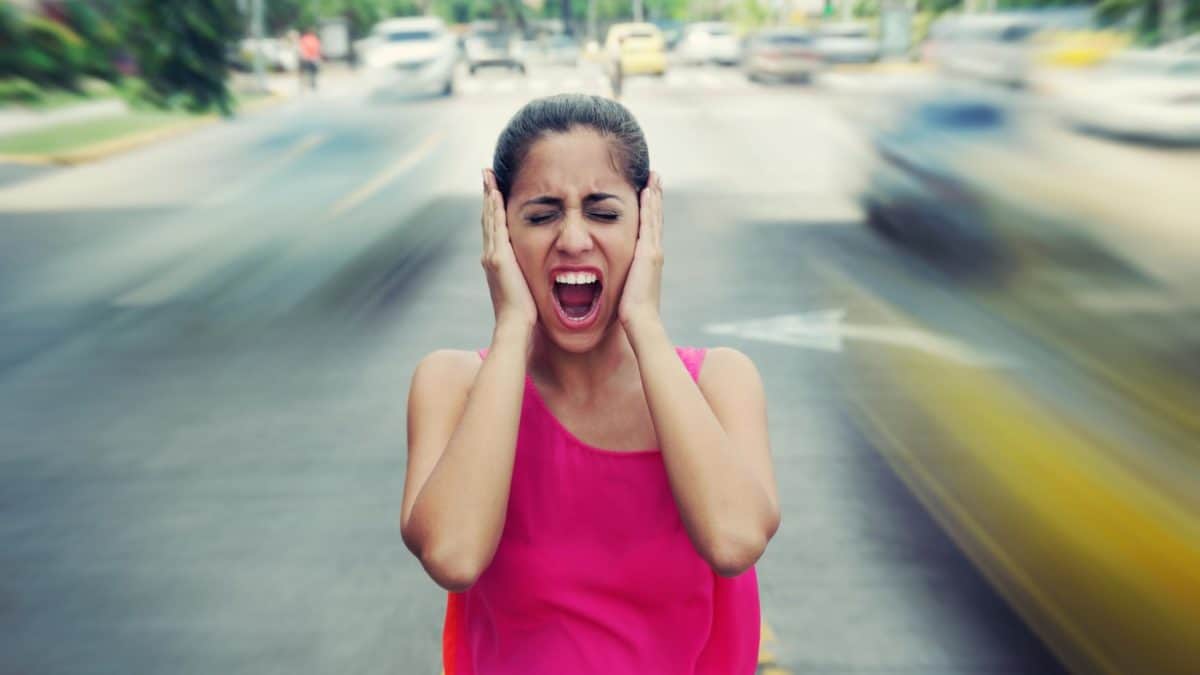- Strategies for Coping with Single-Sided Deafness - July 15, 2024
- How Summer Humidity Affects Hearing Aid Performance - July 3, 2024
- The Power of Body Language: Enhancing Communication for Those with Hearing Loss - June 28, 2024
The sounds that surround us add to our enjoyment. Chirping birds on a calm morning or your favorite music unexpectedly playing on the radio can add to the value of our days. However, sounds that are too loud or overwhelming can be too much.
Excessive noise is called noise pollution, and living in a constantly loud environment may be frustrating and damaging to your hearing. This is especially true if you live in a close location with a lot of noise, such as a city or a busy suburb. The sounds of honking cars, construction, neighbors mowing the grass, and barking dogs can add to a loud experience.
When is noise considered pollution?
Many people enjoy the city’s noise or have grown accustomed to their neighborhood’s incessant rumbling. Just because you aren’t aware of the amount of sound in your daily life doesn’t mean you aren’t suffering from hearing loss. If you’ve lived near a highway or a noisy road for a long time, you might not even notice the noise. When noise is consistently over a safe listening level, it might cause hearing problems.
Any sound that exceeds 85 dB can cause permanent hearing damage. Damage occurs more quickly as the decibel level rises, and it has the potential to become more severe. When someone is exposed to noise over 24 hours, the EPA recommends a decibel level of 55 dB. Meanwhile, a family washing machine may reach 70 decibels, revealing the perils of living in such a noisy world.
Hearing Loss Caused by Noise
Tiny hairs and nerves in our inner ear, which are fragile, might be damaged when noises surpass acceptable listening levels. The sounds we hear are picked up by these hairs and sent to our brains to be processed.
Hearing loss happens as more of these hairs are damaged. While hearing loss is commonly associated with the elderly, it impacts an increasing number of young people.
Noise Pollution’s Risks
Researchers have discovered a link between noise pollution and cardiovascular disease. Noise pollution disrupts our sleep, impairs our neurological system, and can increase our stress levels. Excess sound can cause our blood pressure to remain elevated, contributing to heart disease and hypertension.
Noise pollution’s primary sources
The environment around us is becoming increasingly noisy. Traffic, lawnmowers, trains, music from neighbors, nearby airports, police sirens, and barking dogs are significant causes of noise pollution. The sound level continues to rise as cities and suburbs become more congested.
However, certain harmful sounds to our hearing originate from within our own homes. Dishwashers, washing machines, and air conditioners can produce noise levels that are much over safe listening levels, especially if they are all running simultaneously.
Another factor is the amount of music and television we watch. If you want to listen to music for hours using headphones, make sure to take breaks and keep the volume at 60 percent or lower.
Protect yourself from noise pollution.
If moving is not an option or desirable, there are things you can do to protect your hearing and overall health from noise pollution.
- Check if your appliances are running as efficiently and quietly as possible.
- To absorb sound, place foam or fabric insulation behind noisy appliances.
- It helps to have carpets in your home and curtains over your windows to absorb street noise to protect yourself from solid environmental noises.
- Tall trees and plants in your yard can absorb the sounds from the street, giving a sense of peace in your home.
- When you’re out and about on noisy streets, it’s a good idea to bring ear protection with you if you find yourself in a situation where you’re surrounded by excessive noise.
Make sure your hearing is safe.
While hearing loss is not reversible, it can be managed with hearing aids. To schedule a hearing test, please get in touch with us. We can assist you in locating the most appropriate hearing aids to assist you in navigating an increasingly noisy world.

